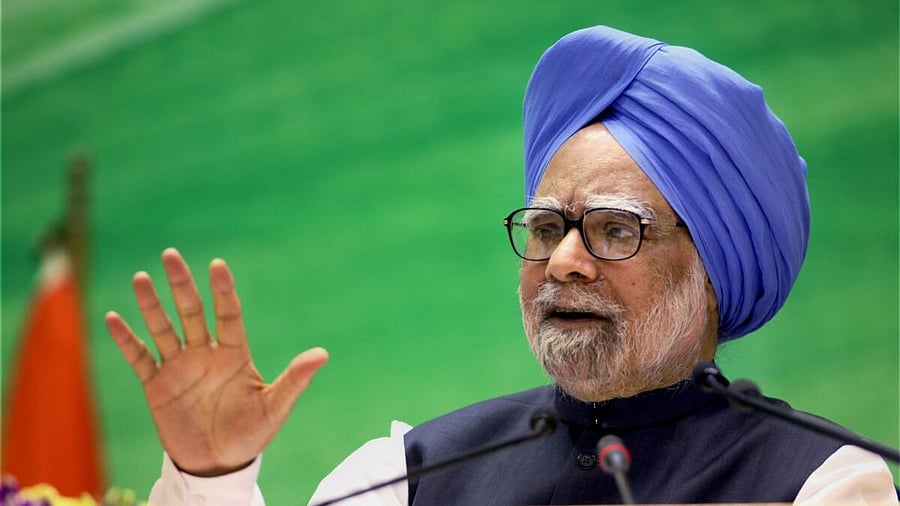
Manmohan Singh
Credit: PTI photo
New Delhi: "No power on earth can stop an idea whose time has come," Manmohan Singh said the above lines concluding his first Budget Speech in 1991 and rest is history.
Lauded by admirers and lampooned by critics for his policies that changed India's economic landscape, Singh has been at the centre of the country's policy making apparatus for years at a stretch.
His exposure in Cambridge and Oxford University as a student followed by a stint in Delhi School of Economics as a faculty member had sowed the seeds for a long innings as an economist of eminence.
His first entry into government was in 1971 when he became an Economic Advisor in the Commerce Ministry and a year later, he became Economic Advisor in Chief Economic Advisor in the Finance Ministry.
In 1980, he became a member of the Planning Commission and two years later, the government chose him as Reserve Bank Governor before he served as Deputy Chairman of the Planning Commission.
Before he became the Finance Minister in PV Narasimha Rao government, he was appointed advisor to Prime Minister Chandrasekhar's Economic Affairs Advisor.
It was after watching the government functioning, especially economic policy making, that he became the top man in the Finance Ministry. His task was cut out and Rao gave him political backing when almost the entire Congress was against him.
His task was cut out as India was reeling under the worst financial crisis -- the country's fiscal deficit was around 8.5 per cent and the current account deficit was close to 3.5 per cent. Also, India had just enough foreign reserves to pay for for two weeks of imports.
In what is described as a bold step to tide over the crisis, Singh presented his budget, which abolished licence raj and opened several sectors to private sector. His policies allowed FDI, moderation in taxes and the controversial privatisation of Public Sector Units.
However, the Harshad Mehta scam dented his tenure and he offered to resign after a Parliamentary committee found him at fault for not anticipating the securities scam. However, Rao rejected his offer and stood by him.
Between 2004 and 2014 when he was Prime Minister, he vigorously advocated the liberalisation process but coalition compulsions slowed the pace.
